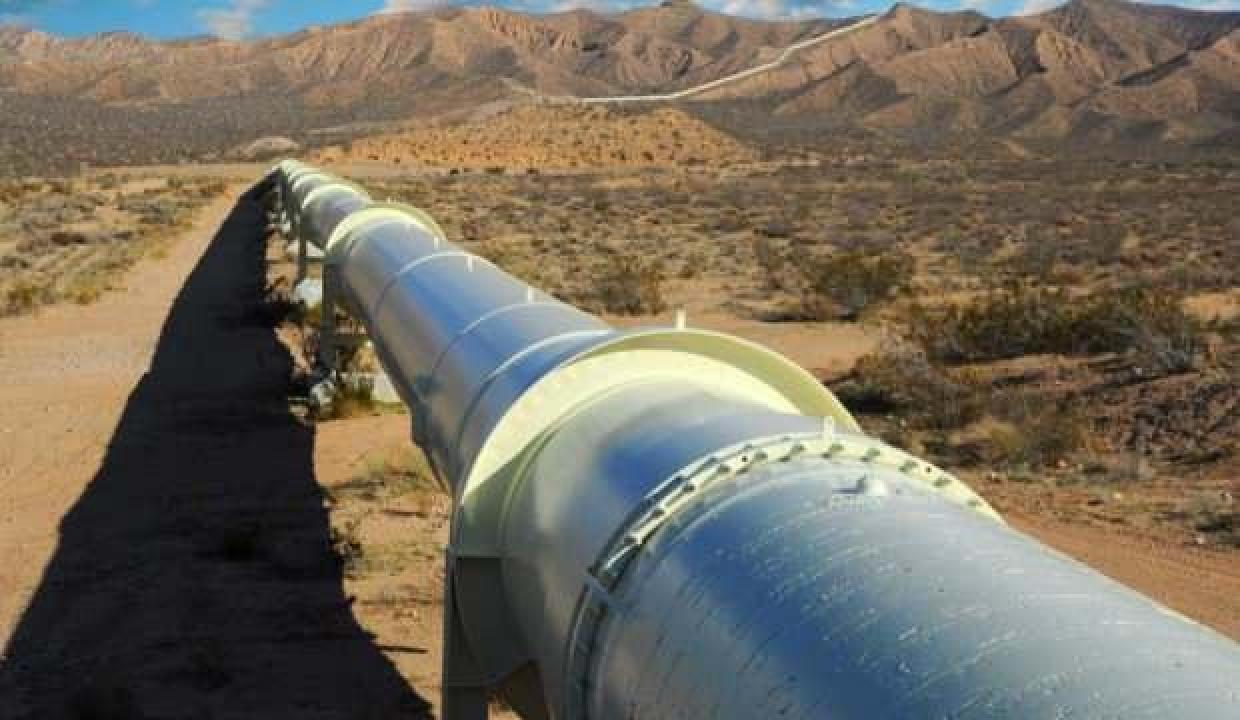Millions of barrels of Azerbaijani crude continue to fuel Israel’s war machine thanks to the Baku–Tbilisi–Ceyhan (BTC) pipeline, which runs through Turkey to the country’s southern Ceyhan port, where the oil is loaded onto tankers, and which is operated by British Petroleum (BP), the largest shareholder of the BTC, according to an investigative journalist citing export data from Turkey’s state-owned crude oil company.
Investigative journalist Metin Cihan, who has been exposing trade relations between Turkey and Israel, detailed the controversial terms of the BTC agreements, which obligate Turkey to maintain the flow of oil through the pipeline even in cases of conflict or terrorism.
This stipulation, Cihan noted, prioritizes the oil trade over human rights and national sovereignty. Despite the critical nature of these terms, Turkey receives only $0.80 per barrel of oil loaded onto tankers at Ceyhan.
The BTC pipeline’s Turkey section is managed by Turkey’s state-owned company BOTAŞ under the oversight of the Turkey Wealth Fund, led by President Recep Tayyip Erdoğan, and has been a critical infrastructure project since its inception.
According to BOTAŞ, millions of barrels of oil are shipped monthly from Ceyhan. The pipeline supplies around 40 percent of Israel’s annual crude oil consumption.
Cihan stated that Turkey has no control or influence over the destination of the oil, as Azerbaijan retains the right to sell the oil and determine its final buyers.
In light of the ongoing humanitarian crisis in Gaza, Turkey recently halted all bilateral trade with Israel until the conflict ends and aid can flow unhindered into Gaza.
The Gaza Strip is suffering a humanitarian crisis caused by Israel’s military campaign against Hamas that started October 7.
Hamas staged an unprecedented attack on Israel on October 7 that resulted in the death of roughly 1,200 people, mostly civilians, and some 250 people taken hostage.
Israel’s retaliatory offensive against Hamas has killed at least 36,050 people in Gaza, mostly women and children, according to the Gaza health ministry, and has devastated the Gaza Strip.
Turkey is one of the most outspoken critics of Israel’s war on Gaza, accusing the Israeli government of committing “war crimes” and “genocide” in the enclave. In early May Turkey’s Trade Ministry announced that it was suspending all trade with Israel until it allows aid to enter Gaza unhindered during its offensive against Hamas militants.
Despite this, the BTC pipeline continues to function due to the binding agreements between BP and the governments involved that mandate the pipeline’s operation regardless of regional developments.
The agreements, signed during Bill Clinton’s presidency in 1999, are seen as one of the significant foreign policy successes of the United States, particularly for securing energy routes independent of Russian influence.
The agreements also require the states to align their domestic laws in favor of the pipeline’s operations, further limiting Turkey’s ability to impose sanctions or restrictions on the flow of oil to Israel.
The agreements have been criticized by experts and rights groups as “colonialist,” as they grant BP privileges and impose obligations on the signatory states that require them to relinquish part of their sovereignty to ensure the continued operation of the pipeline.
NEW: Our latest analysis tracks the trail of death and destruction along the supply chains that bring fossil fuels to Israel. Read about who is supplying the oil fueling the ongoing genocide against the Palestinian people.
#CeasefireNOW #OilFuelsWar
https://t.co/P0Z3yQx3dJ pic.twitter.com/x1vwDFXPzs
— Oil Change International (@PriceofOil) March 14, 2024
Cihan’s previous investigations, based on official statistics and maritime traffic data, exposed the ongoing trade between Turkey and Israel since November.
Despite President Erdoğan’s public condemnation of Israel’s actions in Gaza, trade between Turkey and Israel has continued, contradicting the official rhetoric.
These revelations have sparked criticism and raised questions about the true extent of Turkey’s support for Israel, particularly through the supply of critical materials like steel and cement, essential for military infrastructure.
Cihan argued that Turkey’s trade practices with Israel indirectly support its military capabilities, which contradicts Erdoğan’s public stance against Israel’s military actions.
Following a defeat in the local elections in March, which is partly attributed to the ongoing trade with Israel amid the anti-Israeli sentiment among Turks, as well as a cost of living crisis exacerbated by rampant inflation, Erdoğan finally acknowledged Ankara’s ongoing trade with Tel Aviv and restricted export of some materials in April, while announcing a complete halt to trade in May, after months of criticism.
Israeli-Turkish trade
Israeli-Turkish trade, which has survived numerous diplomatic disputes in the past, is facing a major challenge as Turkey suspends all bilateral trade with Israel in light of the ongoing Gaza conflict, according to a report by Reuters. Turkey’s decision has been criticized by Israel as a violation of World Trade Organization rules.
Israeli importers are now looking for alternative sources of vital goods such as cement, food and cars, which could lead to short-term shortages but is not expected to have a significant impact on the 500 billion dollar Israeli economy.
The suspension of trade by Turkey, which accounted for a significant portion of Israel’s cement imports, has forced Israeli industry to turn to more expensive European suppliers. Despite these disruptions, Israeli officials and economists, including Shmuel Abramzon, chief economist at Israel’s Ministry of Finance, believe the overall economic impact will be minimal. In retaliation, Israeli Finance Minister Bezalel Smotrich has suggested suspending the free trade agreement with Turkey until President Erdoğan steps down.



